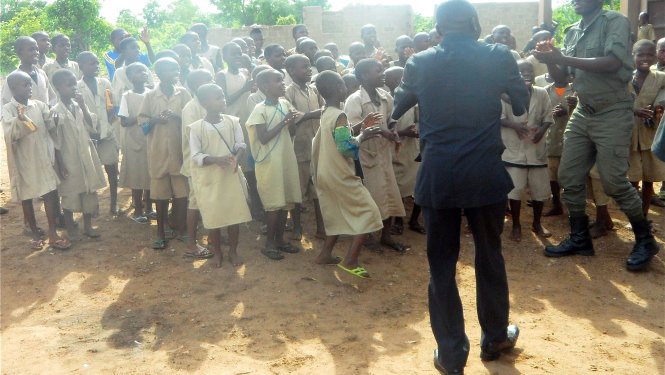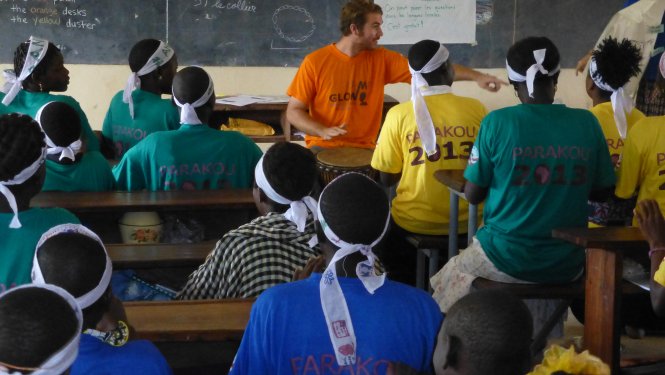Author: Christina Kay | Date published: July 1, 2016 | 8-minute read
Source: Why you should join the Peace Corps straight out of college
Joining the Peace Corps straight out of college can be a great idea.
You have the opportunity to be fully immersed in another culture
You will be placed in a city, town or village where you could be the only foreigner around (or you may find that there is a group of expats). Your success as a Volunteer depends partly on you gaining the trust of your community and understanding how they see themselves. You’ll have a chance to learn a new language, new dance moves and the cultural “do’s and don’ts” of your community. You will be invited to weddings, funerals, festivals and religious ceremonies, all while living at the level of the people whose community you are sharing.

You will constantly be challenged and find opportunities to grow as a person
You will struggle with figuring out the basics – how and where to buy things, culturally appropriate ways to act in different situations, where to go for different services (and how to get there) and how to communicate with people speaking a language you are not fluent in. I spent my first year of service in Benin trying to get a table to hold my gas stove and other kitchen things. The carpenter would go missing for weeks at a time and when I would see him, he promised he’d work on it tomorrow or next week. In the meantime, I sat on the floor to cook. When I finally got the table, it was a tiny version of what I envisioned – a mini coffee table of sorts. There had been no shared cultural meaning of the type of table I thought I’d ordered. I almost started to cry – all that time waiting and it wouldn’t even serve the purpose I needed it to! Living in another country is full difficulties like this, but you build yourself up and become stronger for it.
You have a safety net if you need it
Peace Corps is a government program and while sometimes that means dealing with bureaucracy, it also means that if something goes wrong, you won’t be left to figure it out yourself. For instance, the Peace Corps has a comprehensive medical staff; if you become ill or injured, you will receive high quality medical care. When you arrive in your host country, part of your training will be on safety and best practices to keep yourself safe. Each Peace Corps country has a safety and security officer who is constantly monitoring and sending out alerts if there is something you need to know.
You will have a group of instant friends
Peace Corps service starts with three months of training, during which you bond with fellow trainees. As you relocate to your individual posts, you will share the struggles of living and working in a foreign country and this will bring you closer. The other Volunteers will be your support network – the people you call when you are frustrated or feeling lonely. They will understand the linguistic and cultural struggles, the difficulties with work and why you are so upset about the debacle you had attempting to buy peanut butter in the market.

You might actually make a difference
It’s hard to determine “how much” you accomplish during your Peace Corps service because so many of the things Volunteers are trying to do are not really measurable. Peace Corps has three official goals: two of them center on cultural exchange and one relates to assisting with development in the host countries. I guarantee you that you will “succeed” in at least one of these three areas. Maybe you will build strong relationships with people in your host country who previously had a negative image of Americans. Maybe you can educate your friends and family at home about the people you met in your host country and illustrate your common humanity. These are your small contributions to world peace: Individual citizens of the world who meet each other and build relationships across cultural boundaries. Or maybe you will team up with your community to accomplish something more concrete: tweaking farming methods to achieve a greater yield, working with a women’s group to sell a better product, putting in two years of teaching a subject you’re great at, running camps for girls or boys or building classrooms so more students can make it past 8th grade. Either way, I am a believer in the Peace Corps model of making a difference.
It’s great for building your résumé
Being returned Peace Corps Volunteer means you are skilled in adapting to circumstances, making use of what you have and persisting through difficulty. During service, you will have a lot of time and freedom to choose projects that interest you. You will likely find yourself working on projects in many different areas (education/youth, health/nutrition, economic development), so it’s likely jobs you’ll apply for after Peace Corps will have some component directly related to what you did abroad. Peace Corps also gives you many opportunities to hold leadership roles and manage projects, probably at a higher level than in a job you would typically be able to secure right out of college, and you’ll return from service with improved interpersonal skills and lots of great stories that can be woven into the answer to nearly any interview question.
And as an added bonus, Peace Corps has revamped its application process to make it easier!
When I applied in 2010, it took an entire year to get through the process and I had no say in where I was placed. The waiting was interminable and finally I received an invitation to serve in a specific country and role, which I could accept or decline. The new process is significantly shorter and also gives the applicant more power to choose the country and the position most compelling to them. It’s still a competitive process and takes some time, but it’s worth it!
For more blogs like this one sent right to your inbox, subscribe to the 🎨 Arts, Design, Entertainment + Communications, the ⚙️ Data, Analytics, Technology + Engineering, the ⚖️ Government, Law, International Affairs + Policy, the 💙 Healthcare, Public Health, Life + Lab Sciences, the 📈 Management, Sales, Consulting + Finance, and the 🤲 Nonprofit, Education + Social Impact communities.


